Presbyteral formation, spiritual direction and pornography. The Pope speaks to the seminarians who are shocked.
🇮🇹 Il Papa parla a braccio ai seminaristi e ai preti. Assemblea sconvolta
On Monday 24 October 22, the Holy Father Francis received in audience a group of seminarians and priests who study and carry out their ministry in the Diocese of Rome. This meeting gives us the opportunity to reflect on some very important issues for the life of the Church that the Pontiff addressed with his guests. We cannot hide all the concern that pervaded us as we listened to some of the answers, which is why we hoped they would not be published.
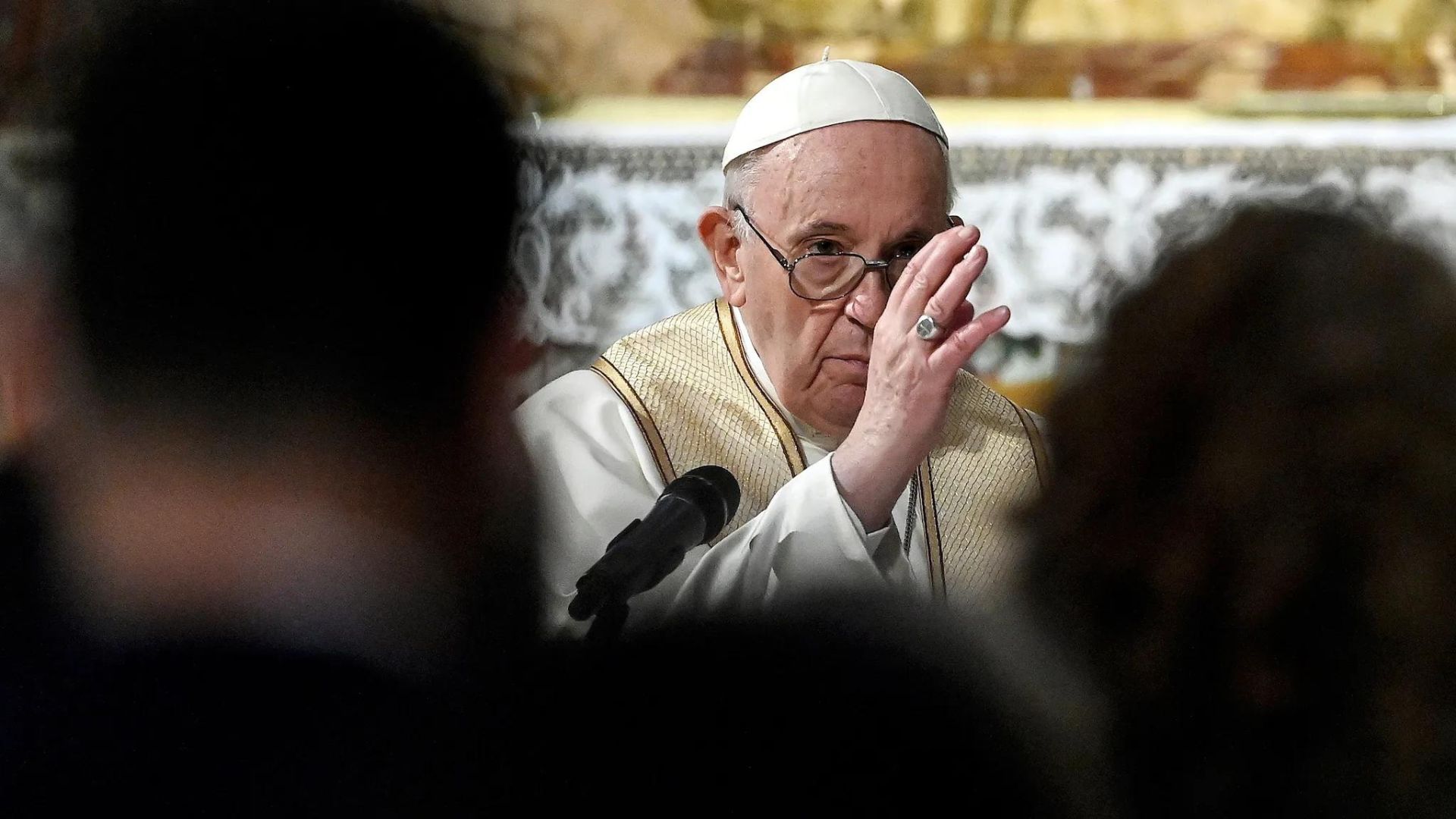
Spiritual Direction
The first topic addressed by Fr Dominique was spiritual direction. The young priest asked the Pope for advice on spiritual direction, he said: “It is difficult for priests to seek spiritual direction from other brothers. How would you advise priests, especially young ones, to seek this spiritual help for their formation?”
Francis replied, “Spiritual direction is not a clerical charism, it is a baptismal charism. Priests who do spiritual direction have the charism not because they are priests, but because they are lay people, because they are baptised.” The Pope, therefore, equates the laity with the baptised. This is quite serious. At the same time, he has completely forgotten those who by nature are called to be Fathers of the Spirit: monks.
Leaving aside the fact that it is absolutely untenable that spiritual direction can be done by a lay person and a priest in the same way, here the very nature of spiritual guidance and accompaniment is at stake.
The great desert fathers, the monks, are those who have always guided souls precisely because of their closeness to God. On the basis of this assumption, then, it can be argued that the sacrament of orders is not indispensable to be able to accompany a person spiritually. If the monk or nun is day and night in contact with God, every day they have real experience of Him; they can certainly guide a believer spiritually, all the more so a priest. That monk will then be able to bring his spiritual child into his prayer.
Today we have forgotten precisely this: the importance of monasteries as places of refreshment for the soul. The fact that the Pope does not tell a presbyter that the place where he will be able to find wise spiritual guidance is the monastery is really worrying.
In Pope Bergoglio’s answers, however, other issues emerge that are truly alarming. I refer to the fact that the Pope equates the spiritual director with a friend. The spiritual director cannot be a friend, one cannot make the mistake that is often made today: parents/friends, teachers/brothers and so on. Leading does not mean, as the Pope implies, something authoritarian, but it means having responsibility for that soul. Showing the way. God will also ask the spiritual director to account for what that soul has done. This task, more than ever, belongs to the monks, wise men who have real experience of amicitia christi. The secular priest must take advantage of this immense gift that the Church has received from God the Father, draw on the monastery to be able to ‘recharge his batteries’. Despite the fact that the Pope has asked several times, and to several monks, what they do all day, the task of the monk is precisely this.
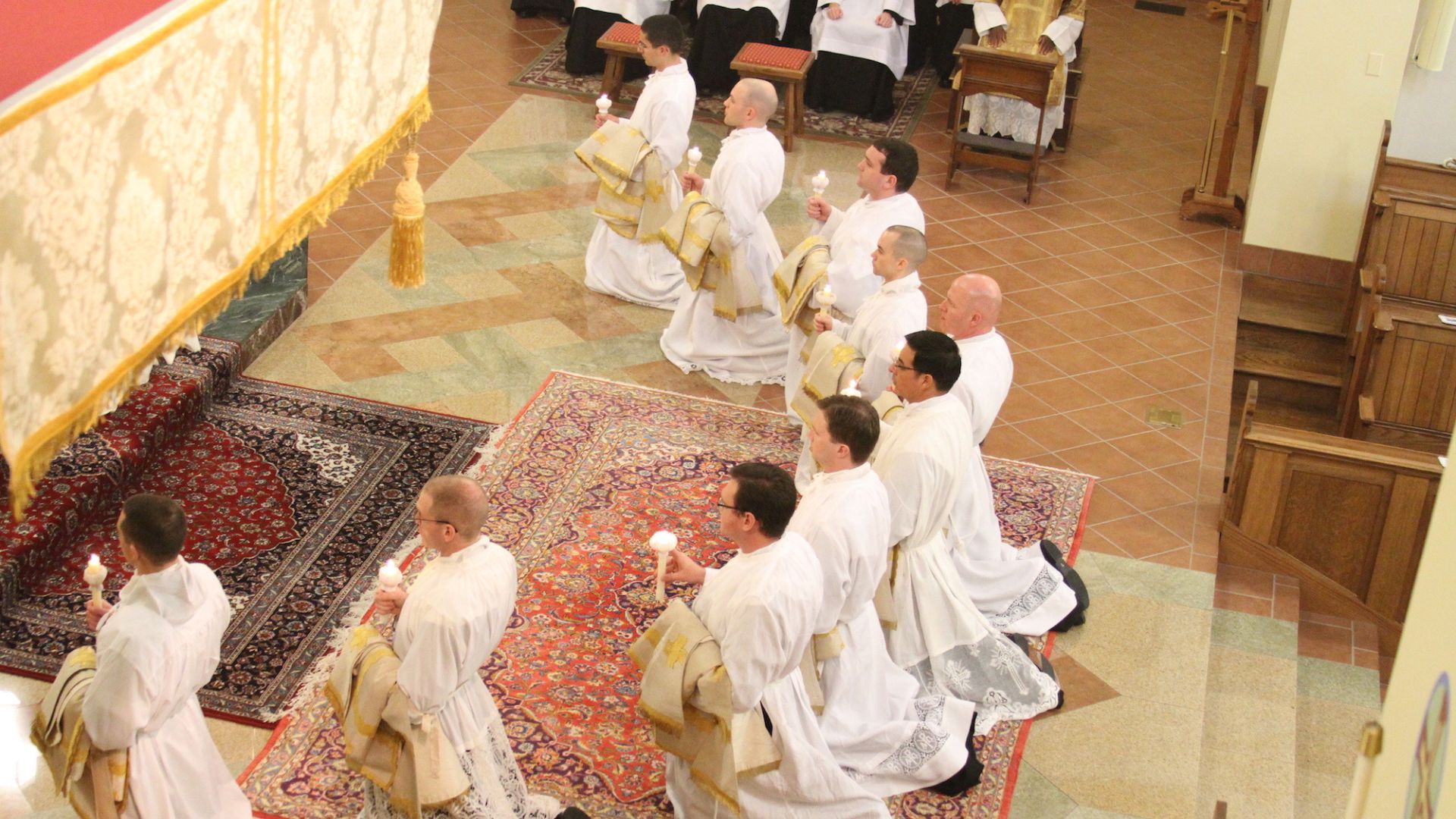
Pastoral service
The Pope was asked a question about pastoral service: "In this time of preparation for Rome, how can we live our ministry without losing that 'smell of the sheep' proper to our priestly ministry?".
The Pope replied: "That is why I believe it is important - I would say necessary, indeed, obligatory - that each of you have a weekly pastoral experience, at least. In a parish, in a home for boys or girls, or for the elderly, whatever it may be, but contact with the people of God. I recommend it. And I say to the Prefects: see if there is anyone who does not..."
The Pope once again confuses hierarchical and ecclesial structures because he is clouded by prejudice. Every priest is incardinated in his own diocese and has his own bishop. The service the presbyter performs in the Roman Curia is limited to that task. It is not for the Prefect of the Dicastery to evaluate the pastoral activity of the presbyter.
But let us reflect further: how many priests do not do pastoral work? Very few. Almost none. They all have a church, a parish, a monastery or a reality where they celebrate the Eucharist, where they hear confessions. Let us not forget that of course they have a number of faithful who gravitate around them, through friendship or spiritual ties.
Why does the Pope not speak of the beauty of the priesthood? Why does he not encourage these young men in ministry, rather than constantly berating them? Why does Francis not offer positive examples of priestly life? Why does the Pope hate his priests? What manager would behave like this? In a secular reality that no longer has 'employees', who would have the courage to make such speeches against his workers?
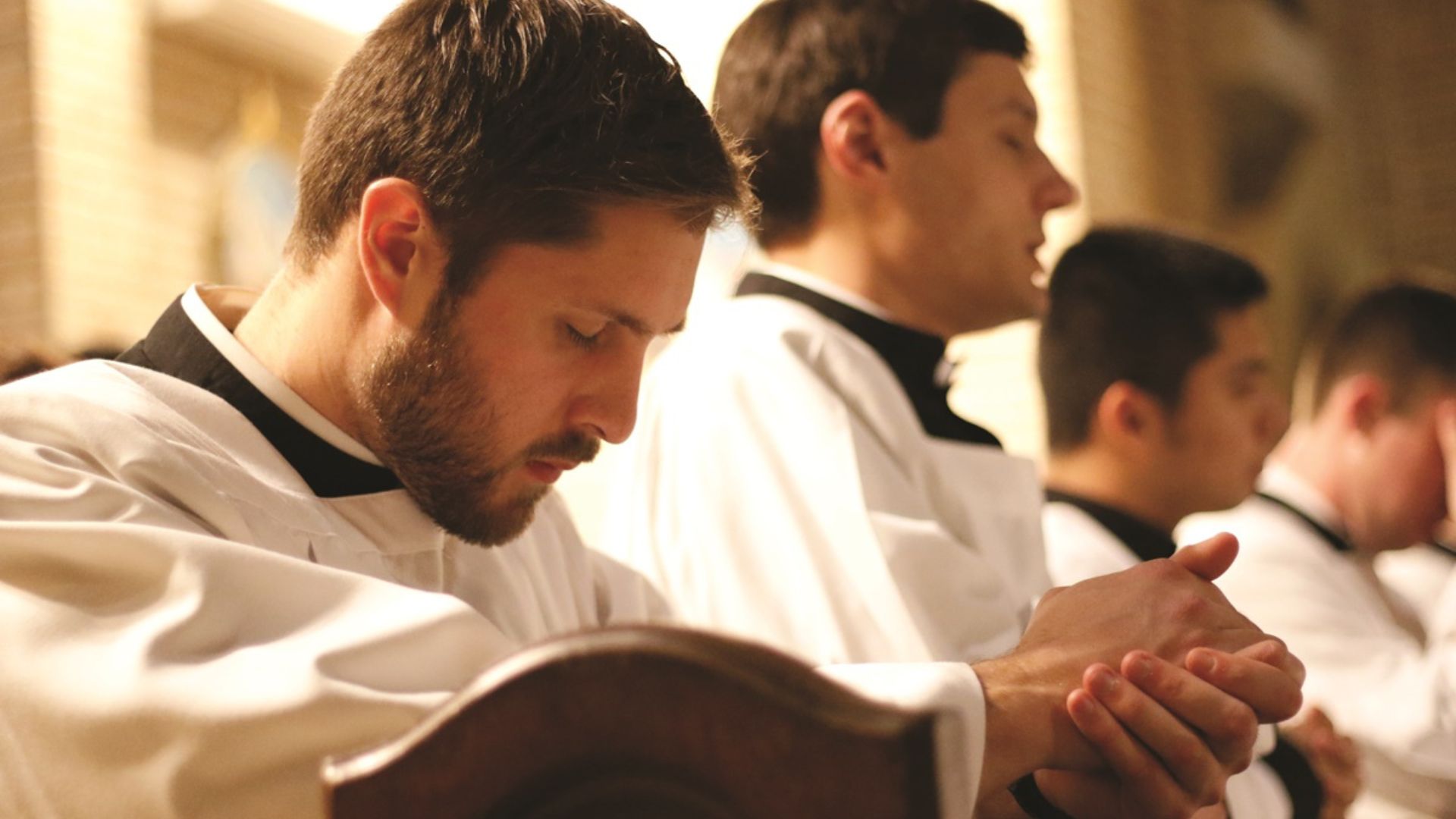
Priestly formation
The Pope continues his reflection and answers a question on formation in seminaries. It is incredible how Francis does not address the real problems of priestly formation: affectivity, spirituality and pastoral.
The subject of numbers comes up again. There are some dioceses that do not even have a seminarian and the Pope speaks of "seminaries with a number - 25, 30 - a moderate number". The question of seminaries, we are talking about physical structures, is a very serious problem. Inter-regional, inter-diocesan and regional seminaries have shown that they are absolutely no use.
The Catholic Church today has to deal with several problems in priestly formation. The priest must be formed in the diocese where he is to carry out his ministry, something we have often forgotten to mention. Presence in the diocese allows seminarians to enter the presbytery and begin to know the reality that is destined to welcome them. Without forgetting that returning to the diocese only on Saturdays and Sundays is not enough and risks creating priests who do not know the pastoral reality in which they will then have to live. Speaking of the 'smell of sheep'. Moreover, if regional seminaries are created, then the numbers are fortunately not 25-30, or they should not be, and so there is a risk that the relationship with the formator is not so serious.
Looking at the numbers is important to understand how surely something is not working. The Church is not a company, fortunately we could say, otherwise we would need a Bankruptcy administrator. The seminarians today are too few in number compared to the parishes and souls to be cared for. The solution is not to entrust the same tasks to the laity, but it is necessary to make an examination of conscience. It is not even a question of discussing the change in society because this would only confirm how the Church today is not up to its task.
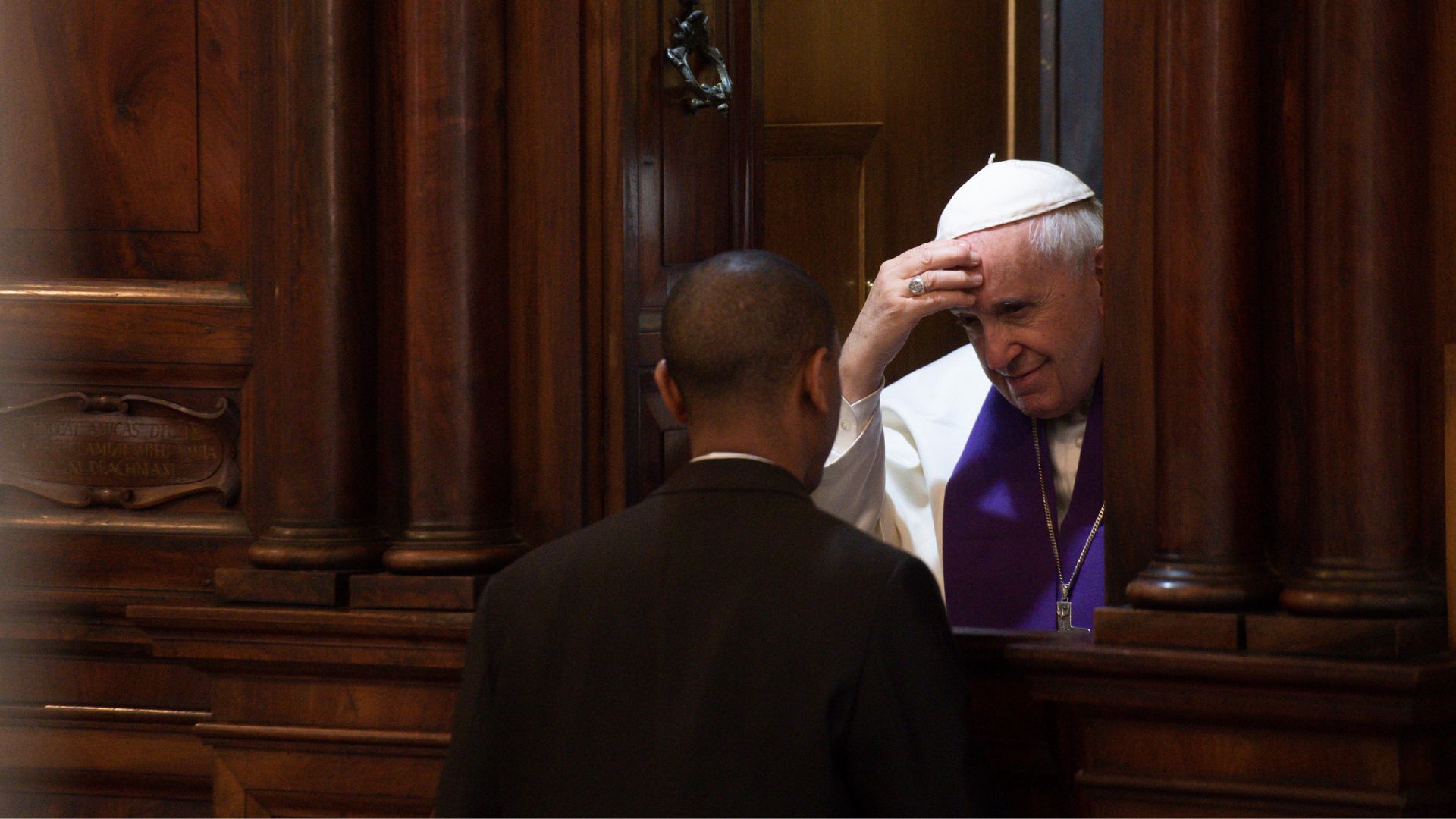
Why are some realities thriving? What distinguishes them from the others? In the end it always comes back to the same old speech, the problem is the lack of a seriously lived life and the lack of a structured educational offer.
Priests by acclamation?
This lack of seriousness in formation emerges from the very words of the Pope, who admits that he relied on a lay faithful to assess whether or not to ordain a young candidate for the priesthood a deacon.
It is evident that something is wrong. The Pope said: «I remember a case, a good young man, intelligent, who was to be ordained deacon, I remember this well. A woman from the parish told me: 'I would make him wait a little because he is good, he has all the qualities, but there is something that does not convince me'. A brother coadjutor also told me: 'Father, let him wait a year, it won't hurt him'. The others all praised him. I followed that path, and after four months he left of his own free will: a crisis had broken out».
Firstly, neither lay people nor clerics will ever have the gift of foresight and understand that someone may enter a crisis. Secondly, crises are not reasons to interrupt the path to priesthood, crises are dealt with. Thirdly, how is it possible that the formator cannot do something for which a lay person from outside the educating community would be more competent? Perhaps the trainer was chosen wrongly?
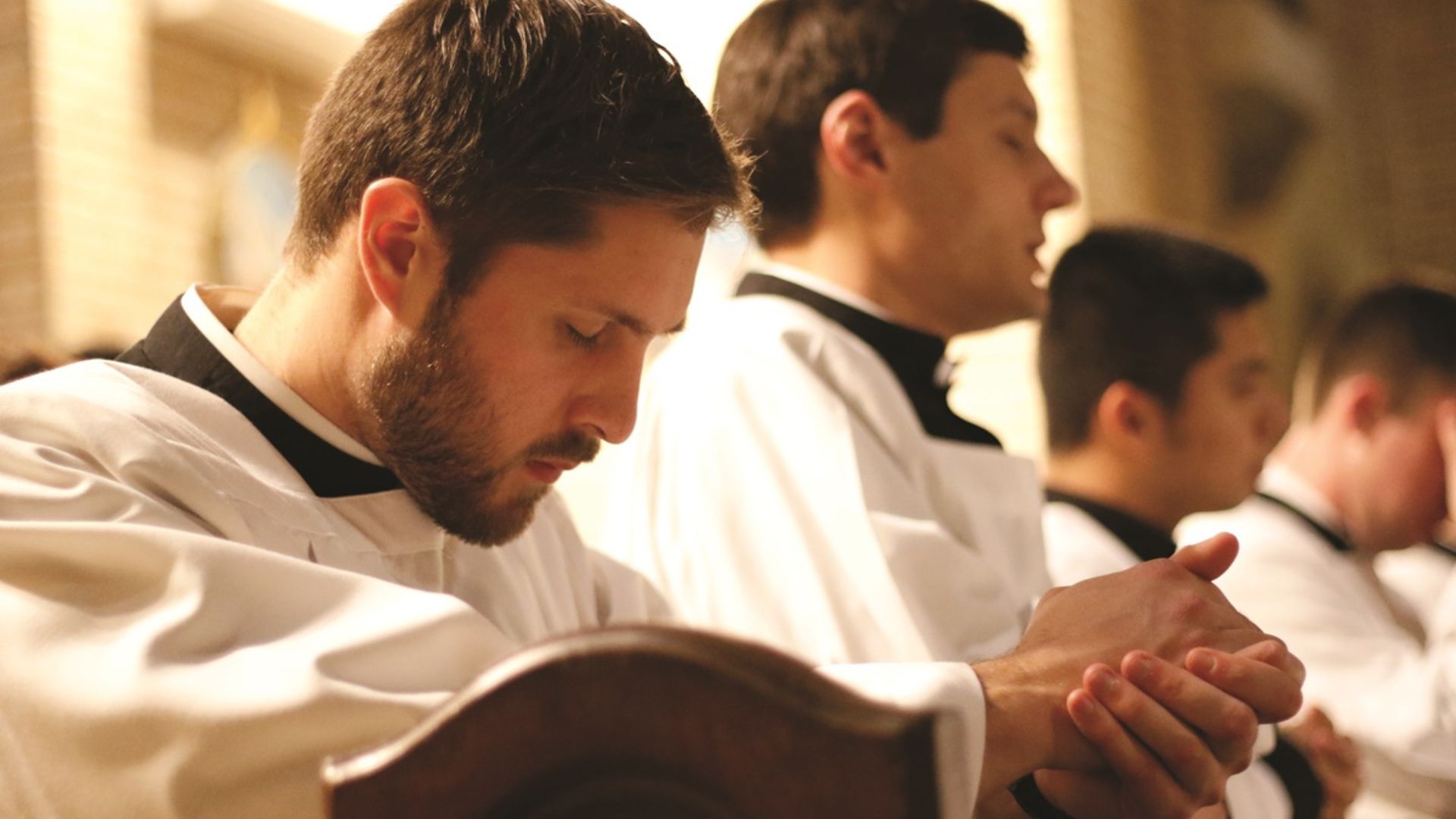
Psychologists (women) in seminaries
I must dwell on the issue of lay people in priestly formation. This issue has also come up recently within the structure of the Italian Bishops' Conference, which is working on the drafting of the new Ratio Fundamentalis for the formation of seminarians. It is nothing new that there are rectors and bishops who choose to use married couples or lay women in the seminary journey.
These choices, besides being nauseating, make no sense. There has been talk of the inclusion of a (necessarily female) psychologist within the seminar. I wonder: what for? What should be the benefit?
We have already talked about the problem of psychologists in seminars, and nobody looks at these issues because they clearly do not make the news. Today the intention is not to promote priestly life but to demonise it. In seminaries and religious training facilities, psychologists are now used exclusively to identify homosexuals. Identifying them in order to then be able to expel them. Silere non possum has also contacted the Order of Psychologists of the Italian Republic on this issue and has sent notices to all the regional orders, pointing out that "if any professional is found to be involved in activities of this kind, disciplinary proceedings will be initiated and criminal profiles will also be ascertained'. Several professional orders have shown cooperation by stating that this would be a violation of deontological duties".
But why does the psychologist have to be a woman? There are two issues that do not add up and cast doubt on the good intentions of some journalists.
Let's think about the reasoning that some fools make. First of all, why would we need a necessarily female professional figure in seminars? A mother figure? This idea is absurd! The same journalists who speak positively about this news are the same ones who claim there is no need for female figures to have mother figures in families. Which, by the way, we firmly believe, but it is clear that these people flaunt certain issues just because it suits them.
If this is the case, if it is a lack of female figures, we should assume that there is a lack of male figures in the training houses. Why, then, not propose a male psychologist in women's training communities?
Questio number two: is professionalism defined by gender? Is a woman better than a man? Can a man not give what a woman gives? We are completely out of our minds here, and if such rules are included in the text of the new Ratio, it would be time for everyone to take their luggage and leave. The intention of some, moreover, seems to be just that.

Married couples in the seminary
As we have anticipated, there are also some formators who already bring married couples to the seminary, because, they claim, "these people can give testimony on the realities that the priest will face in the parish and can provide a judgement on vocation".
These are the usual formators who act on ideologies that they have been repeating for years like mantras inside their seminary rooms when, outside, the Council was being celebrated. The Second Vatican Council never said anything about these things, but they are still convinced. Today, a priest who goes to the parish how many married couples does he find? 5 o 6? Not even those.
What can a married couple say about the seminarian? Whether he can become a priest? Do they have any particular discernment on the subject? Do they live the priestly life? Have you ever seen a priest go to a family and say: "No, you cannot marry this one; marry that one instead' or 'marriage no, go to a monastery"?
A blind church wandering around
The image of the Church today is that of a blindfolded man walking around trying to find his destination. The laity want to be clerics and the clerics want to imitate the laity. The result is absolute chaos. Presbyteral formation cannot depend on the consent of a faithful laywoman who reports to the bishop or rector that she likes or dislikes that boy. People must learn to return to the essence and see in the priest an alter Christus, not their aphorism of reference. A priest who is Man with all his weaknesses, like everyone else.
The judgement of the trainers cannot be based on the percentage of appreciation of the people. We are not participants in the TV programme Tu si che vales. The Lord can call different people to the priesthood: shy, extroverts; great preachers, men of prayer. If a person is more shy, it does not mean that he has a problem and cannot be a priest. It means that his ministry will be different from the extrovert candidate. You cannot continue to make the mistake of the seminaries in the Lombardy region (Italy): are you good at oratory? No. Then you can leave. The Church is not a social organisation for entertainment. The laity can do oratory just fine.
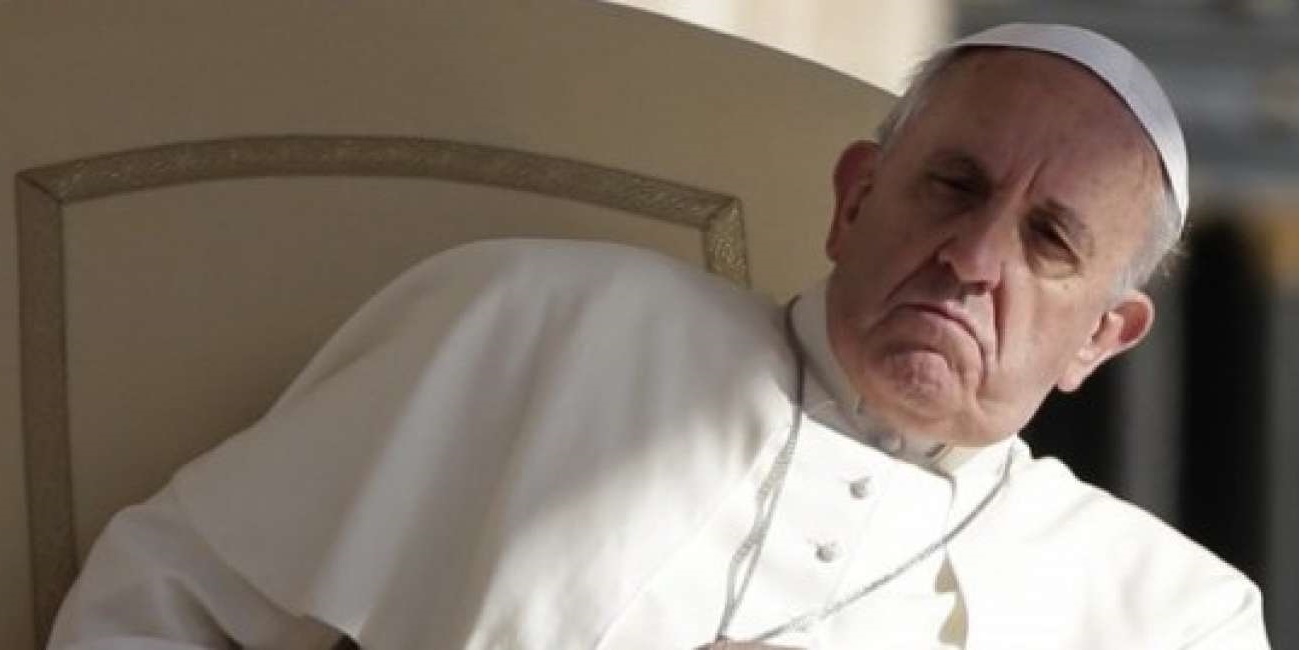
The Pope fixated on sex
A seminarian asks a question: "Holy Father, today's generation of priests and seminarians is immersed in the digital and social media world. How can we learn to use these tools as opportunities to share the joy of being Christian, without forgetting our identity or being too exposed and arrogant"?
The young man in training then asks the Pope how to use today's social tools positively. The Pope responds by saying: "And on this there is also another thing, which you know well: digital pornography. I am saying this in no uncertain terms. I will not say: 'Raise your hand if you have had at least one experience of this'. But each of you think about whether you have experienced or had the temptation of digital pornography. It is a vice that so many people have, so many lay people, and also priests and nuns. The devil enters from there".
Honestly, we do not know what experiences the Pope has had in his life, but to tell clerics that they 'know well' digital pornography is quite serious. Why should they be familiar with pornography? Jorge Bergoglio's psychologist who knows what she would say. Some professionals we contacted speak of 'projection'. What is the logical thread that leads one to talk about pornography when the question is "how to use social tools?"
This leads us to a reflection. Francis, like all Jesuits, has a penchant for sex. That is why Silere non possum is always horrified when some journalists want to embroider a dress that does not fit Bergoglio. Pope Francis can never be the one to 'open up' on moral issues. The reason is only one: he is a Jesuit. Jesuits are famous in the history of the Church for being rigid and fixed on questions of morality.
This moment, in which the Pope speaks without a prepared speech, is proof of that. Imagine if this question had been put to John Paul II or Benedict XVI. They probably would not have even remotely thought of pornography, which, moreover, is almost always censored on social media.
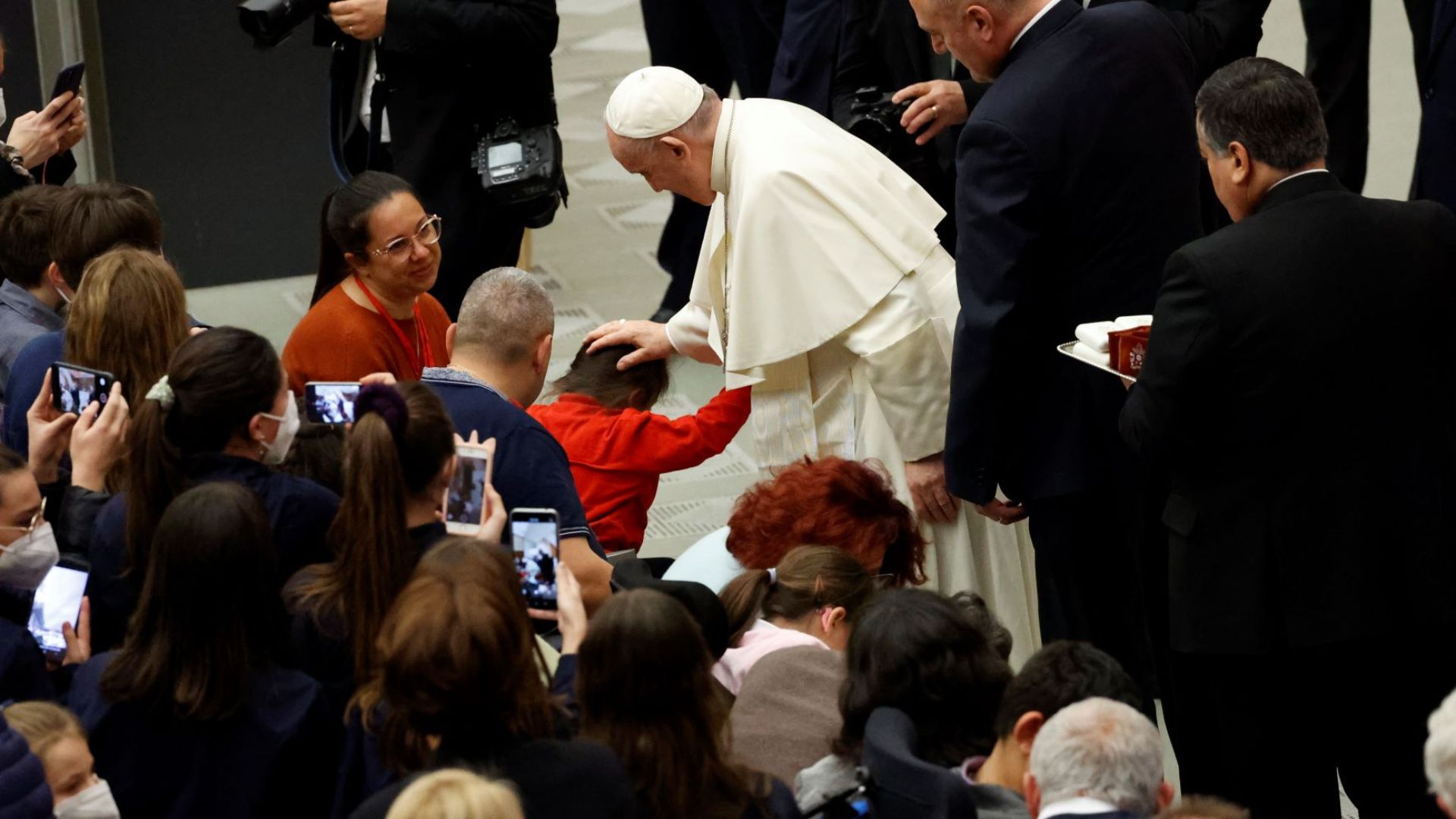
It must be emphasised, however, that the Pope missed the opportunity to underline how the problem of pornography is linked to a very broad problem in the question of the affectivity of priests as well: egoism. The risk is to seek, then, only relationships aimed at satisfying one's ego, relationships aimed at giving pleasure. The Pope could have reflected on this, given that affective formation is by no means the property of seminary rectors today.
The Pope's gestures
Another seminarian focuses on the Pope's gestures. Once again there is a confusion between what is the character and personality of the human being and what is the mission of the Pope. The gestures Francis speaks of, and indeed he points this out, are spontaneous things that come from the heart. They therefore belong to the sphere of personality, they cannot be imposed. Otherwise one runs the risk of being fake, which is what they do today, precisely to please the Pope or the superior on duty.
Emphasising the importance of gestures is emblematic in a society that relies heavily on what appears. Yet, that highest form of evangelisation that is the liturgy, today is completely left to chance and vilified. The beauty of the Eucharistic celebration, the beauty of all the gestures that tradition has handed down to us, are trampled upon on a daily basis.
It is clear, therefore, that one runs the risk of being contradictory and carrying on a rhetoric that has nauseated young people. Precisely by looking at the liturgy and the seriousness of a life lived for Christ, the Pope could have answered the other question of a young seminarian: "How can we young seminarians come out of our 'comfort' to evangelise other young people?".
This is the only way to evangelise a young person. Seriousness in life, believing in what you do. Testimony is everything. Then it is not clear what this 'comfortableness' is that is often spoken of. The life of the diocesan priest today is by no means comfortable. He is faced with a huge amount of activities and in different parishes. In fact, the risk is not comodism at all, but rather the abandonment of prayer. The practices of piety. How many presbyters today have to neglect the breviary because they have a thousand activities?
So let us be clear: these are today's problems. Do we want a social worker priest or another Christ, someone who administers the sacraments and offers himself for us?
The former may be a useful thing that the layman can also do, the latter not. Confusion reigns supreme and at stake are fundamental questions of faith. At stake is the identity of the presbyter himself.
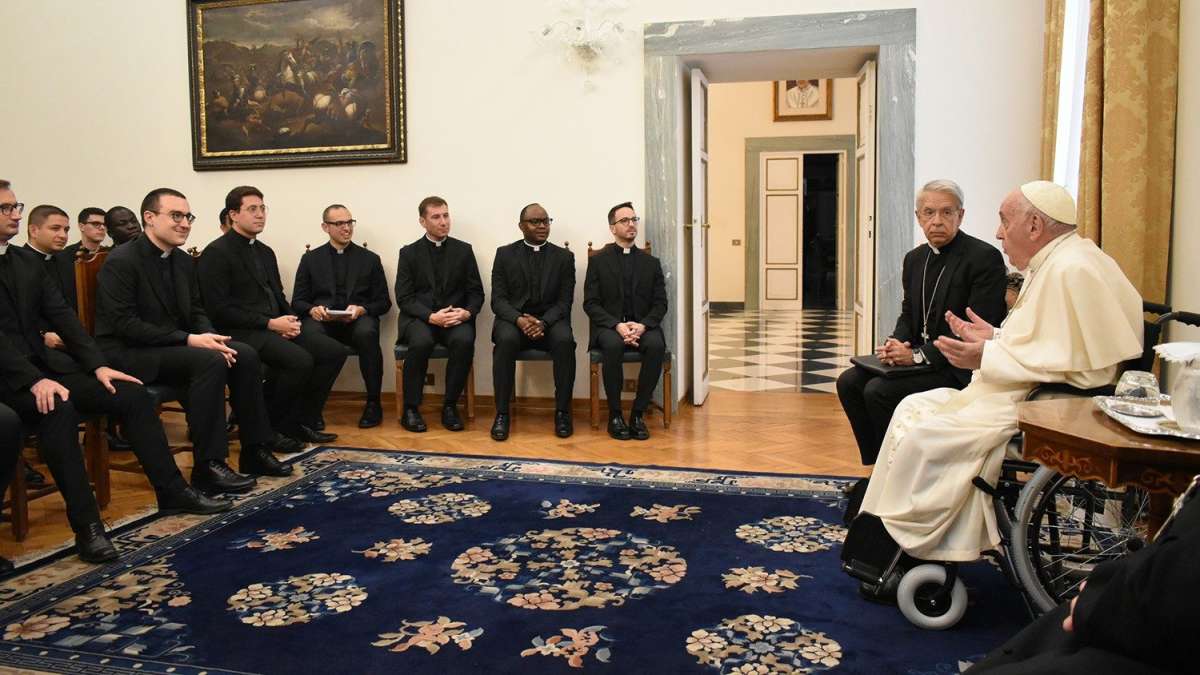
Careerism
Francis then speaks of careerism, another issue close to his heart. "There is another thing that accompanies this comfort, it is the 'climbing' dimension, climbing priests, who make careers. I think you see them... In the curia no, in the curia it doesn't happen! But elsewhere it happens... When you are about to make a change, there they come, come, come... the climber. Please stop, stop" the Pope said.
Good theory but in practice there are still gaps. These words sound like the identikit of a priest whom Pope Francis brought to the Vatican just because he liked his books and the priest was introduced to him by a long-time friend. In and out of various seminaries, the priest came to L'Aquila where Bishop Molinari ordained him a priest. In recent years, this priest had started to illicitly take charge of the St Pius X Preseminary, even ending up in an internal power struggle. In the end, Francis gave him the prize and placed him in a Dicastery, creating an ad hoc office for him. So the Pope criticises 'careerists' a lot, but in the end they are the ones he rewards.
One of the problems of Pope Francis is that he relied on people he 'fell in love' with and then banged his head against the wall. It is a 'falling in love in time'. Do you see a priest who does two interesting spiritual thoughts? He thinks: 'I'll make him a bishop'. Then the Prefect of the Dicastery for Bishops arrives with a dossier 20 cm high and says: "That's not possible, Your Holiness!". A few months pass and those who gravitated around Santa Marta are sent to the other side of the world.
If you are a friend of Francis everything changes. If a friend of the Pope introduces someone to him, he becomes the greatest collaborator. Does the Argentinean bishop tell him that he did not molest the seminarians? "Come here to the Vatican I'll create an office for you, come on". This is the climate here in the Vatican today.
Speaking with seminarians and priests, Francis confirmed that if one of their brothers speaks ill of them, he trusts that priest. Francis has expelled a number of people on the basis of anonymous letters and without ever verifying their veracity. We are at this level. But at the same time he says: "Yes, the priests are all with a big smile, but then they leave and in small groups they “kill” each other."
Have we ever wondered why priests speak ill of their brethren? Because they probably have listeners. If the bishops did not listen to the slanders, the priests would keep quiet. If the pope did not listen to the insinuations, the 'comrades' would not talk. This is also one of the proofs that if someone is called to discernment by vocation, there will be a reason. It is just not the case to rely on the housewife on duty.
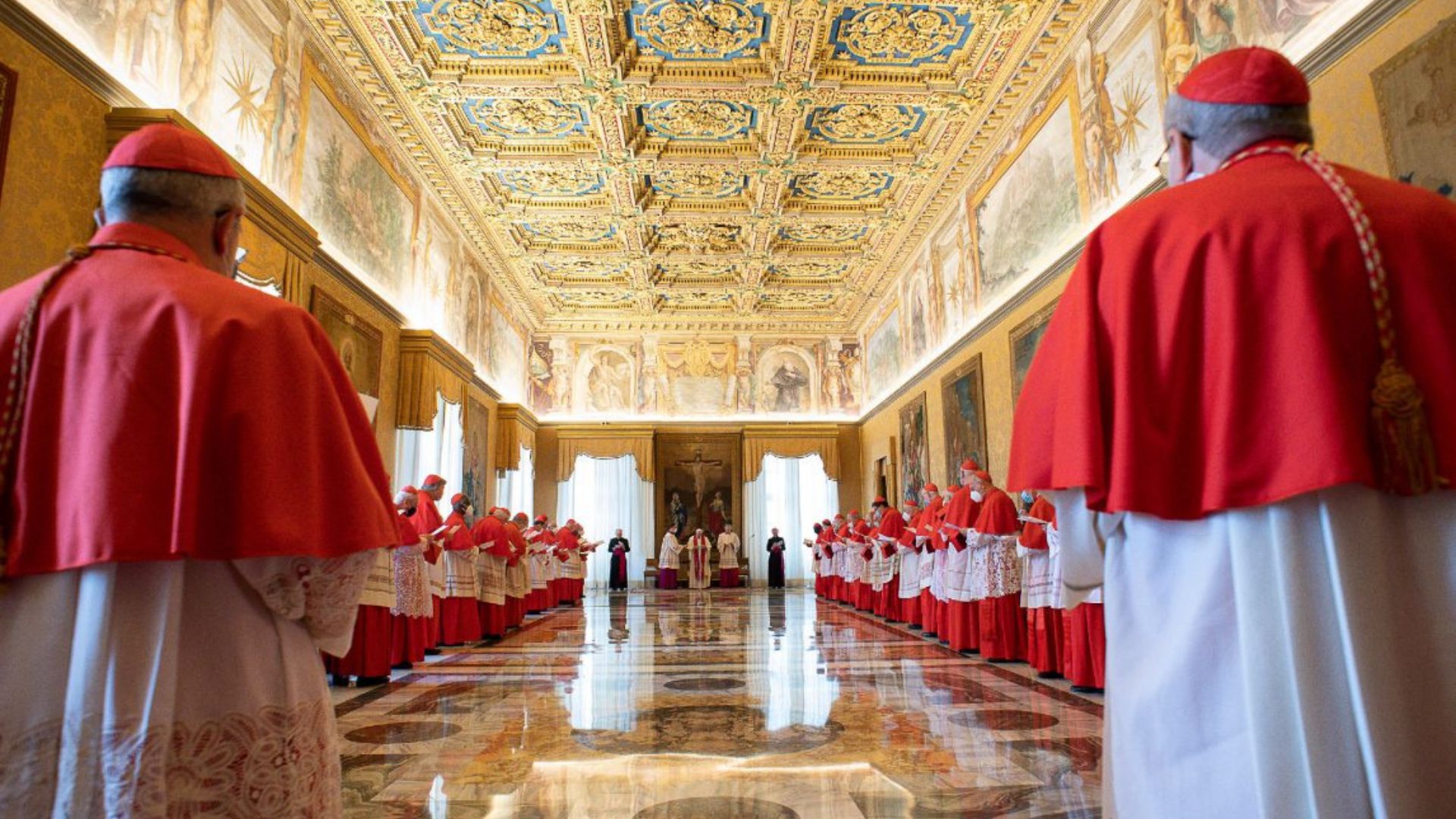
Some considerations
These interventions of the Pope without a prepared speech are emblematic. On the one hand, they offer us the pure figure of Francis, as he really is; on the other, they give us great concern. Today it is clear that the problems in the Church are not the height of the candlesticks or how many embroideries a rochet has, there are issues that are truly alarming and one cannot continue to play on issues such as power and grace as some like to do.
Everything is at stake. Despite the fact that there are those who think about how to attract young people, when in reality they are disgusted by friars and nuns who go to the squares to rock and make fools of themselves in their eyes. Men and women who abandon their robes to mingle with teenagers who, instead, are looking for strong figures to imitate and get answers from.
We can only trust in the Lord.
L.M.
Silere non possum